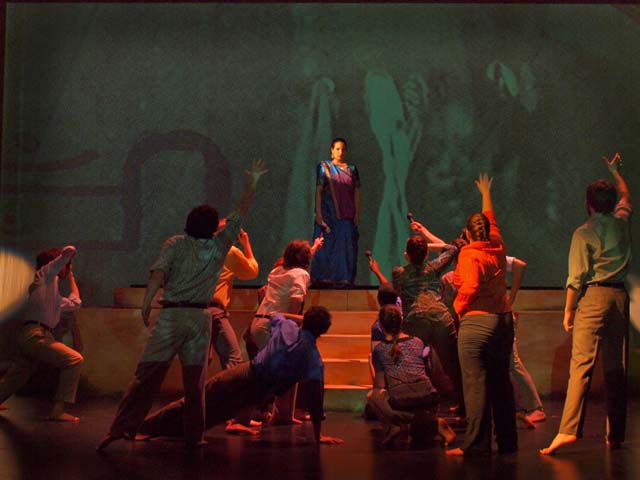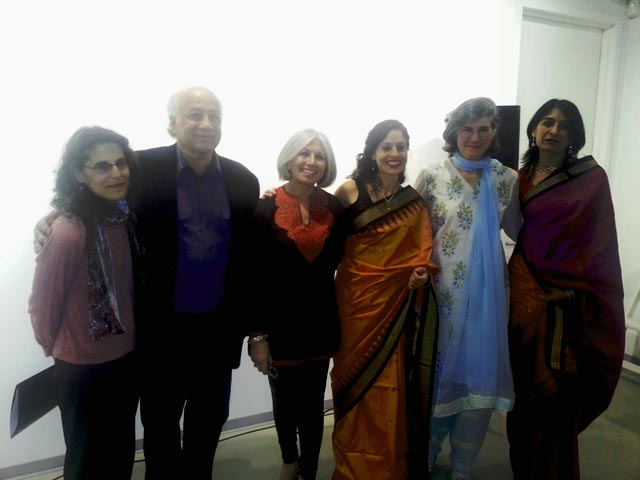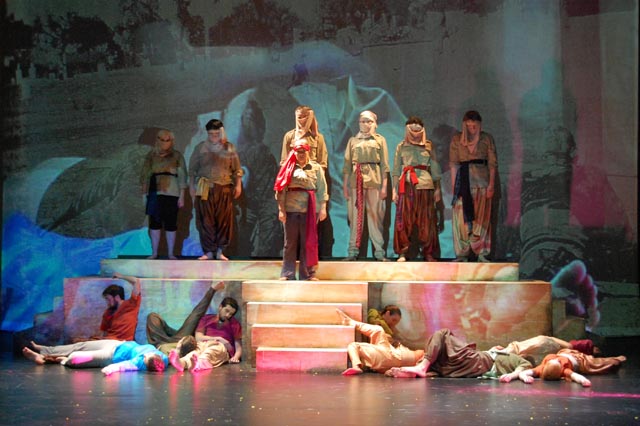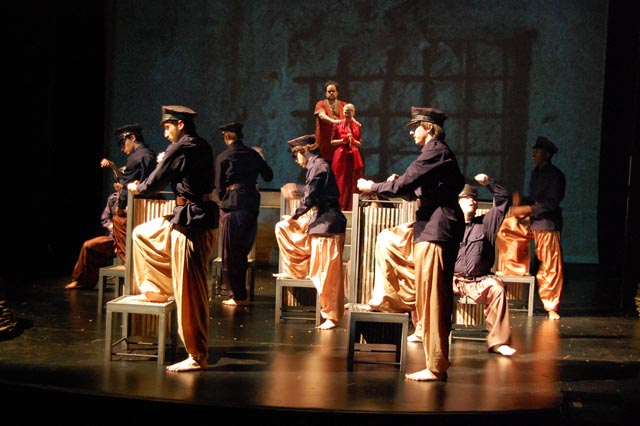
Remembering The Bandit Queen
Phoolan Devi, India’s notorious Bandit Queen, was gunned down at the age of 37 – yet she continues to live on in the popular imagination. Rape victim and avenging angel, oppressor and oppressed, she finally won respectability, embraced Buddhism, and a seat in Parliament before a barrage of bullets ended it all.
Vengeance. Rape. Murder. Bloodshed. Violence. Her short, chaotic life was indeed the stuff of melodrama, and several artistic ventures have tried to capture its turbulence. One of the most successful was Shekhar Kapur’s memorable film ‘Bandit Queen’ which won international fame for both the director and for Seema Biswas’s powerful portrayal.
There is a continuing fascination with Phoolan Devi’s life, and in her latest avatar she is the central figure in an opera. ‘Phoolan Devi: The Bandit Queen’ is a multi-media chamber opera in the making, co-sponsored by the Indo-American Arts Council (IAAC) and Da Capo Chamber Players. It is composed by Shirish Korde, has a libretto by Anushree Roy and is directed by Tom Diamond, with choreography by Nandini Sikand.
On a recent evening in Manhattan, Aroon Shivdasani, the Director of IAAC, had invited several New Yorkers to the Saffron Art Space to meet with the creative team behind the opera, over wine and cheese.

Phoolan Devi: Child Bride, Abused, Gang-Raped, turns Bandit Queen
“Phoolan Devi was born in abject poverty, she was sold as a child bride, was abused, gang raped, victimized and finally abducted by bandits and became a bandit queen herself,” said Shivdasani. “She saw herself as a Robin Hood – as a Durga – her life was violent, not necessarily out of choice but so much violence was done to her that she herself got the thirst for violence.”
Shirish Korde, a noted composer, spent his early years in East Africa so was already familiar with Indian and African music before studying Western music in the US, and is currently a Professor of Music at the College of the Holy Cross in Worcester, MA. He has several operatic works to his credit, including ‘Chitra’ and ‘Rasa’, in which he combines Indian instruments with Western orchestral music.
Korde, who has received several arts grants, is working on various projects including a new song cycle, KA, for the Boston Musica Viva, a work for cello and voice – Anusvara, Fifith Prism for the cellist Jan Müller-Szerwas and Deepti Navaratna, soprano. His guitar concerto Nada Ananda was recently released on CD.

Violence, Retribution, Transformation, Myth, Class…
The Bandit Queen has been on his mind for several years. “The themes in her life : violence, retribution, transformation, myth, class were all fascinating…in fact, ideal dramatic material for an opera,” he says. “Phoolan Devi’s story raises difficult and universal questions about violence and women. I felt that no single vocal style – opera, jazz, etc. – could accurately represent her complex character,” he says. So the music draws from many cultures and embraces opera, classical music, jazz, hip hop, folk music from Rajasthan and Vedic chants. The spoken word includes poems by Pablo Neruda, the Iraqi poet Rabia and the Pakistani poet Faiz.
Indeed, the cast is a mix of West and East and from Canada and the US. The Toronto-based soprano Zorana Sadiq, who is a Pakistani-Canadian, plays Phoolan Devi. “What’s beautiful about her voice is that she can cross over into jazz, into Carnatic music or popular music,” says Korde. Sadiq has won high praise in the role of Phoolan Devi in a staged performance in Boston and has also played Margaret Trudeau in Trudeau: Long Path, Shining March for the World Stage Festival, Laurette in Opera New York’s Gianni Schicchi, and Ariane in R. Murray Schafer’s opera The Enchanted Forest, among others.
“Musically, singing the role of the Phoolan Devi is quite challenging,” said Zorana Sadiq from Ontario. ” Shirish’s compositional style requires that I sing a large range of vocal styles, from Western Classical to the Carnatic to the ghazals of Pakistan. As I prepare for this, I must be flexible with all of these very different styles of vocalization.”

Who was Phoolan Devi – Victim or Avenging Angel?
Dance is an integral visual part of telling the Bandit Queen’s story in this opera and choreographer Nandini Sikand uses Odissi dance as a basic vocabulary. A filmmaker, Odissi dancer and anthropologist, Sikand is an Assistant Professor in the media studies program at Lafayette College in Pennsylvania. She has her own neo-classical Odissi dance company, and typically collaborates with various dancers. Donia Salem and she are co-choreographing and will be auditioning dancers, male and female, trained in martial arts and modern dance as they move further in the process.
For Sikand, the question is “Who was Phoolan Devi – victim or avenging Durga?” Through dance, the opera explores the larger aspect of divinity, what it means to feel forsaken and the fact that devotion can come from a place of strength. In this choreography the goddesses Durga, Kali and Bhairavi change qualities and countenance, as Phoolan Devi’s life unfolds.
There have been several workshops of the opera, the last one being a staged workshop in Boston. Korde says that this procedure is natural in the creation of operas. “Operas are major artistic endeavors and by nature collaborative, with music and sung and spoken texts, with dance, movement, sets, lighting, video and costumes,” he says. “It takes a lot of work to get all the elements right…so it is customary for operas to have at least one or two workshops, unstaged and staged productions before the full production is premiered.”
(C) Lavina Melwani
This article first appeared in The Hindu

1 Comment
India is a land of contradictions – what with more than a billion people – contradictions are to be expected. Long back I read a Sanskrit verse that meant – where women are worshiped, Gods live. And yet, many a times we treat our women the way Phoolan Devi was treated.
I look forward to a day when we are able to create operas based on the Good that people have done to others and not have any reason to discuss if a person was more of a victim or an avenging angel. In fact I’d be happy if we have neither victims nor avenging angels.